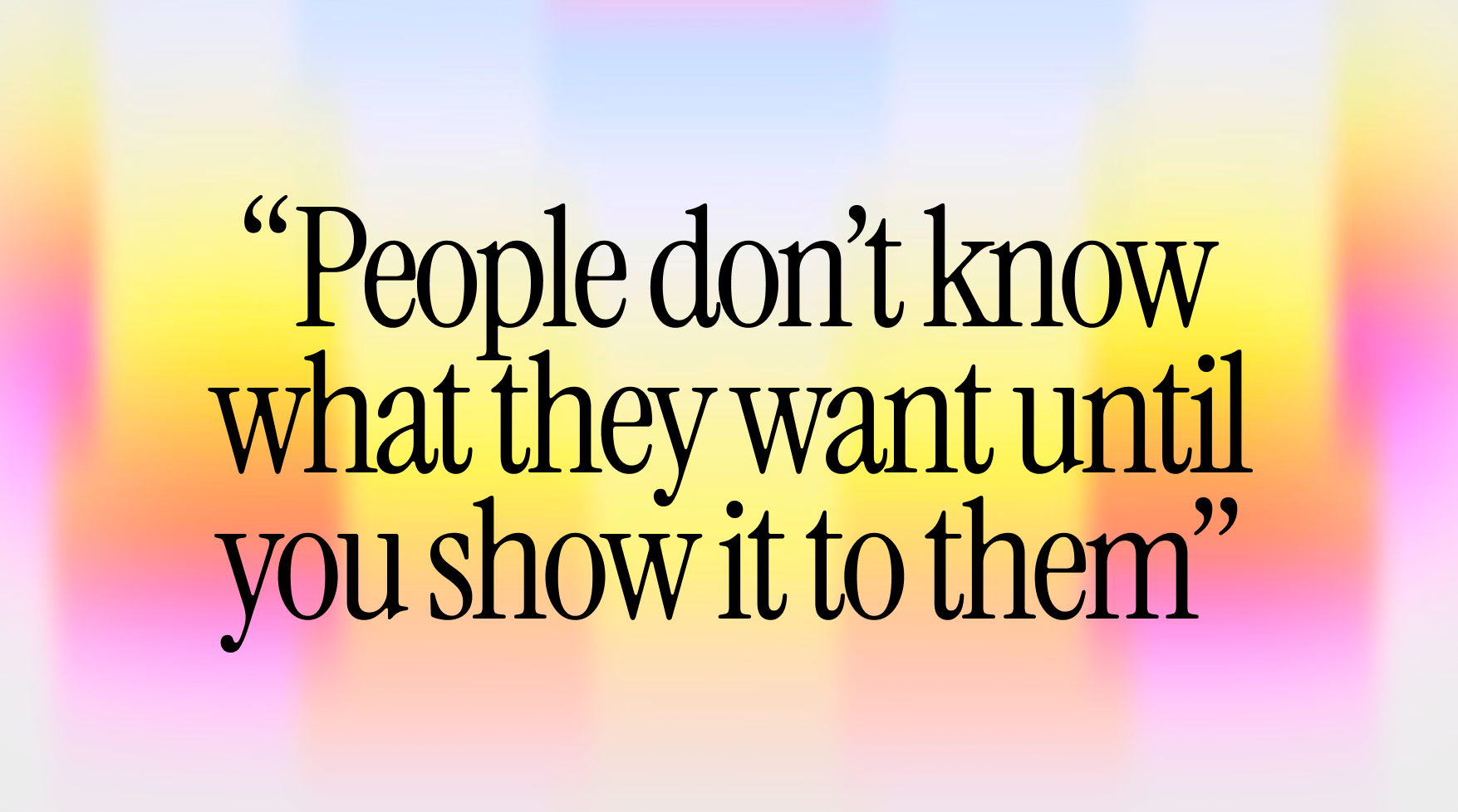On Dia, Arc, and "People Don't Know What They Want Until You Show it to Them"

I was absolutely captivated by the Arc web browser from the moment I started using it a few years ago and quickly became an evangelist. It really felt like an entirely new idea for how to use the internet, it was more organized while also somehow being more fun. It became an essential part of my workflow on the Mac and when it first came to iPhone, it became a cross platform obsession. The introduction of Arc Search and Arc Max signaled however, that The Browser Company was thinking bigger. With the advent of AI tools around the same time as Arc was taking off, it was becoming clearer and clearer that the internet was about to change dramatically. Arc continued to improve between 2022 and 2024, but at the end of the year they decided to pivot. Instead of building on Arc, they chose to build an entirely new browser. I suppose apt for a company literally called “The Browser Company."
Like lots of other diehard Arc fans, I was upset when they decided to abandon Arc. I’m not a fan of using products that have uncertain futures, so it felt like the rug was being pulled out from under me. If something is going to become essential in my workflow, I want to know it’s here for the long haul. While The Browser Company said they were going to maintain the core product that is Arc, they weren’t going to improve upon it. Any new ideas were going to be reserved for the new browser: Dia. At the time it felt difficult to get behind this plan as it was unclear exactly what the point of Dia was, new entrants were starting to arrive on scene like Perplexity’s Comet and Deta’s Surf, and the company’s mobile app Arc Search wasn’t getting much attention. I had started to doubt The Browser Company. Thankfully I was wrong.
I probably should’ve known better, Josh and the team he’s put together have consistently executed on great ideas beautifully. Perhaps I had become a bit set in my ways. Working in digital media for as long as I have now, much of the work is focused on reader and customer insights. The success of Dia over the past few weeks has brought me back my roots, reminding me of the iconic Steve Jobs quote “people don’t know what they want until you show it to them.” As it turns out, that’s exactly what Dia is. Dia has made me more productive than Arc ever did, which is saying a lot. The Browser Company had a vision that they believed in, stuck to their guns, and stayed heads down. While it felt like us rowdy Arc fans were being ignored by The Browser Company, the reality is that they were just doing what they thought was best for us. They were right. Could they have been more communicative throughout the process? Sure. But I’m glad that we’ve ended up here. The reception to Dia has been tremendous and it has largely erased any frustration that folks had. They made the right call. I could share more about how I am using Dia and what I generally think about individual features. But the browser is still in the oven and I’m gonna withhold any sort of “review” until it ships to everyone. All I’ll say now is that Dia’s AI-powered contextual awareness is almost certainly going to appeal to a significantly larger audience, which fortunately should ultimately include Arc diehards. And I’d be remiss not to mention that I can much more easily see Dia being monetized than I ever could with Arc.
Watching all of this unfold has felt pretty profound and has reignited a spark in me. It’s reinforced that data isn’t everything. Of course I have always known this. Visionary ideas aren’t born out of customer insights. They come from smart groups of people dedicated to an idea, regardless of what others think. We could all stand to embrace a little more of that boldness. After all, “it’s better to be a pirate than join the Navy."
